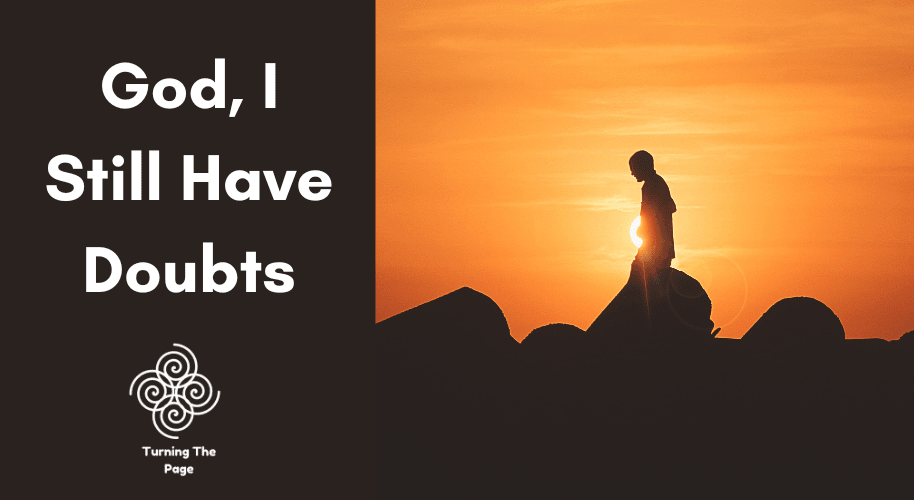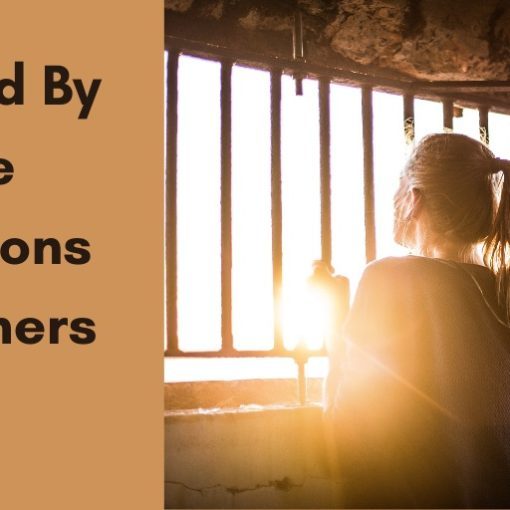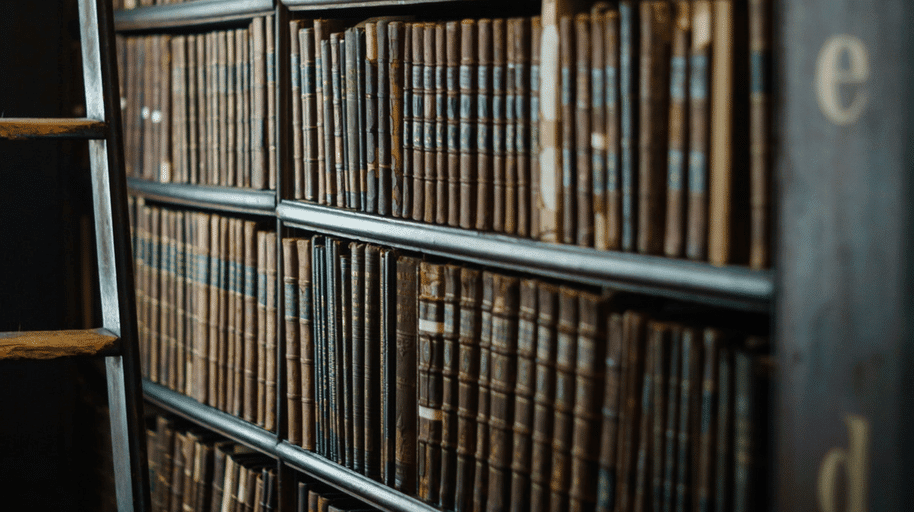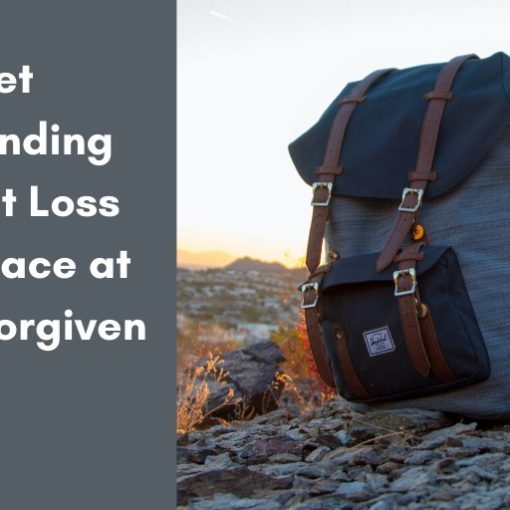There are times when I have doubts. I question God, and I wonder. But over the years, I have built up a memorial of stones that reassure my soul.
I have questions.
I have doubts.
Places in my thinking where I question what I have taken to be true.
Evidence is presented thoroughly and convincingly in the courtroom of my thinking, and so in a logical place, it must be true, but other factors make me waver. ‘Surely, this can’t be true.’
- If God is good, then why so much pain
- If God is good, then what is God good for
I can wrestle these questions out with good well-founded theology, but it’s a kiss on the lips that I need—a heart connection of compassion to my human need for surety.
What is doubt?
A doubt can be a thin slither of a question that slides into our garden of security.
The first offer of doubt was when the serpent whispered a question to Eve’s beauty and Adam’s strength.
“Did God really say?” Genesis 3:1
A question asked promotes a question to be considered and not always to be resolved. We like answered questions.
But a question brings us to consider options, and that is where we can have a seed of doubt germinating, growing, and digging deep into our thinking.
A doubt is a double stance—a shifting between two positions, a wavering, and an uncertainty.
Having doubts is not a flaw of our humanity; it’s not a black mark against your soul; it’s more a healthy sign that you are thinking.
Puppets don’t have doubts. Machines don’t have doubts.
It’s only we humans that have doubts.
Perhaps your doubts are the fertile soil for Spirit to bring new certainty.
An intimate farewell party
It was an intimate party. Not everyone was invited, but only a select few.
Don’t you feel special when you have been selected to attend a private party—you’re one of the insiders, one of the cool gang.
And this was the farewell party of Jesus.
Now the eleven disciples went to Galilee, to the mountain to which Jesus had directed them. When they saw him, they worshipped him; but some doubted. Matthew 28: 16, 17
Here they were. The eleven disciples (Judas was no longer with them) having their final connection with the fully human and fully divine Jesus, and they were worshipping him. It must have been full of glory and wonder, but some doubted.
You would think after all the events and experiences that they had had, there would be no doubt in their minds at all, yet for some, there still was.
Im glad Matthew wrote that little note down. It tells me that those that doubt are still welcome to worship. We don’t have to have everything together, and we can still have questions and ponderings.
Did Jesus have doubts?
I don’t think the fully divine Jesus would have had doubts.
But the fully human Jesus could have had doubts. Maybe in the garden of Gethsemane when he was betrayed and knew crucifixion was ahead of him. Perhaps a question briefly flitted across his anxious mind.
Leaving there, he went, as he so often did, to Mount Olives. The disciples followed him. When they arrived at the place, he said, “Pray that you don’t give in to temptation.”
He pulled away from them about a stone’s throw, knelt down, and prayed, “Father, remove this cup from me. But please, not what I want. What do you want?” At once an angel from heaven was at his side, strengthening him. He prayed on all the harder. Sweat, wrung from him like drops of blood, poured off his face.
He got up from prayer, went back to the disciples and found them asleep, drugged by grief. He said, “What business do you have sleeping? Get up. Pray so you won’t give in to temptation.” Luke 22:39-46
Pray so that the slither of a doubt doesn’t become a wedge that drives deep into his thinking.
Calming the emotional brain
I’m reading The Body Keeps the Score: Mind, Brain and Body in the Transformation of Trauma by Bessel van der Kolk.
Here are some quotes for you to ponder on.
No matter how much insight and understanding we develop, the rational brain is basically impotent to talk the emotional brain out of its own reality.
If you feel safe and loved, your brain becomes specialized in exploration, play, and cooperation; if you are frightened and unwanted, it specializes in managing feelings of fear and abandonment.
Psychologists usually try to help people use insight and understanding to manage their behavior. However, neuroscience research shows that very few psychological problems are the result of defects in understanding; most originate in pressures from deeper regions in the brain that drive our perception and attention. When the alarm bell of the emotional brain keeps signaling that you are in danger, no amount of insight will silence it.
When our emotional and rational brains are in conflict (as when we’re enraged with someone we love, frightened by someone we depend on, or lust after someone who is off limits), a tug-of-war ensues. This war is largely played out in the theater of visceral experience—your gut, your heart, your lungs—and will lead to both physical discomfort and psychological misery.
Bessel van der Kolk – The Body Keeps the Score: Mind, Brain and Body in the Transformation of Trauma
That final quote speaks to me about the fertile soil of doubt. Our emotional and rational brain being in conflict and wavering, uncertainty, and indecision. I am in doubt.
I need someone a millimeter ahead of me to calm and reassure my emotional brain.
Someone who can say, ‘I am with you, I understand and accept your doubts, and I’m not going to try and talk your emotional brain out of its reality, but I am going to hold you in the midnight of your fears.’
I have doubts, and my emotional brain still longs for certainty, but I have a friend who reminds me of truth.
Times when my emotional brain feels truth flow as fact. I look for grace showing up when logic is breaking down.
Thresholds
As I write this, it is 5 am. It’s dark outside, but soon light will banish the dark away.
I am on the threshold of a new day. The threshold is the object you step over when entering a house. You have crossed over; you have entered the building.
I am about to cross the threshold of a new day. I am about to step over and into something new.
Thresholds are the space between, when we move from one time to another, as in the threshold of dawn today or of dusk to dark; one area to another, as in times of inner or outer journeying or pilgrimage; and one awareness to another, as in times when our old structures start to fall away and we begin to build something new. Christine Valters Paintner The Souls Slow Ripening: 12 Celtic Practices for Seeking the Sacred
As I look to my day, I can prayerfully reassure my emotional brain that it will be ok. I’ve done this many times before.
The tempter presents slithers of doubt about the surety of what’s beyond the threshold. Not just today but six months down the track.
I pick up a few smooth stones to fight my goliath of doubt.
Stones that speak to me of previous skirmishes I doubted, but God came through.
Memorial stones had been removed from the river Jordan and placed down as a reminder to the doubters. Joshua 4
Quotes to consider
- St. Thomas Aquinas taught that the corruption of the best is the worst. So the Bible is capable of great good, but we all understand it at our own stage of emotional and spiritual development. If you are still a black-and-white, rigid thinker who needs certitude and control at every step-well, the Trinity will feel out of reach. Grace shows up where logic breaks down, so you won’t go very far. No matter what passage is given to you, you will interpret it in a stingy, vengeful, controlling way–because that’s the way you do life. Richard Rohr
- Faith is not the clinging to a shrine but an endless pilgrimage of the heart. Joshua Heschel
- Faith is not the opposite of doubt. Faith is the opposite of certitude. Where you don’t need to be certain to be happy. If you can’t go there, you’ll never be happy because you’ll never get logical certitude. If you’re waiting for 100% certitude, you’re never going to happy. Richard Rohr.
- A changed life demands having new understandings in place when you need them. Store them up now and lubricate by revision. D. Riddell
- Without the inner discipline of faith, most lives end in negativity, blaming, or deep cynicism—without even knowing it. Richard Rohr
Questions to answer
- How much reassurance did you gain from knowing the disciples of Jesus still had doubts?
- What do you do when a slither of doubt appears?
- Jesus said, ‘ Pray so you won’t give in to temptation.’ How would having an active prayer life offer us a place of protection from giving into temptation?
Further reading
Barry Pearman
Photo by Aziz Acharki on Unsplash





